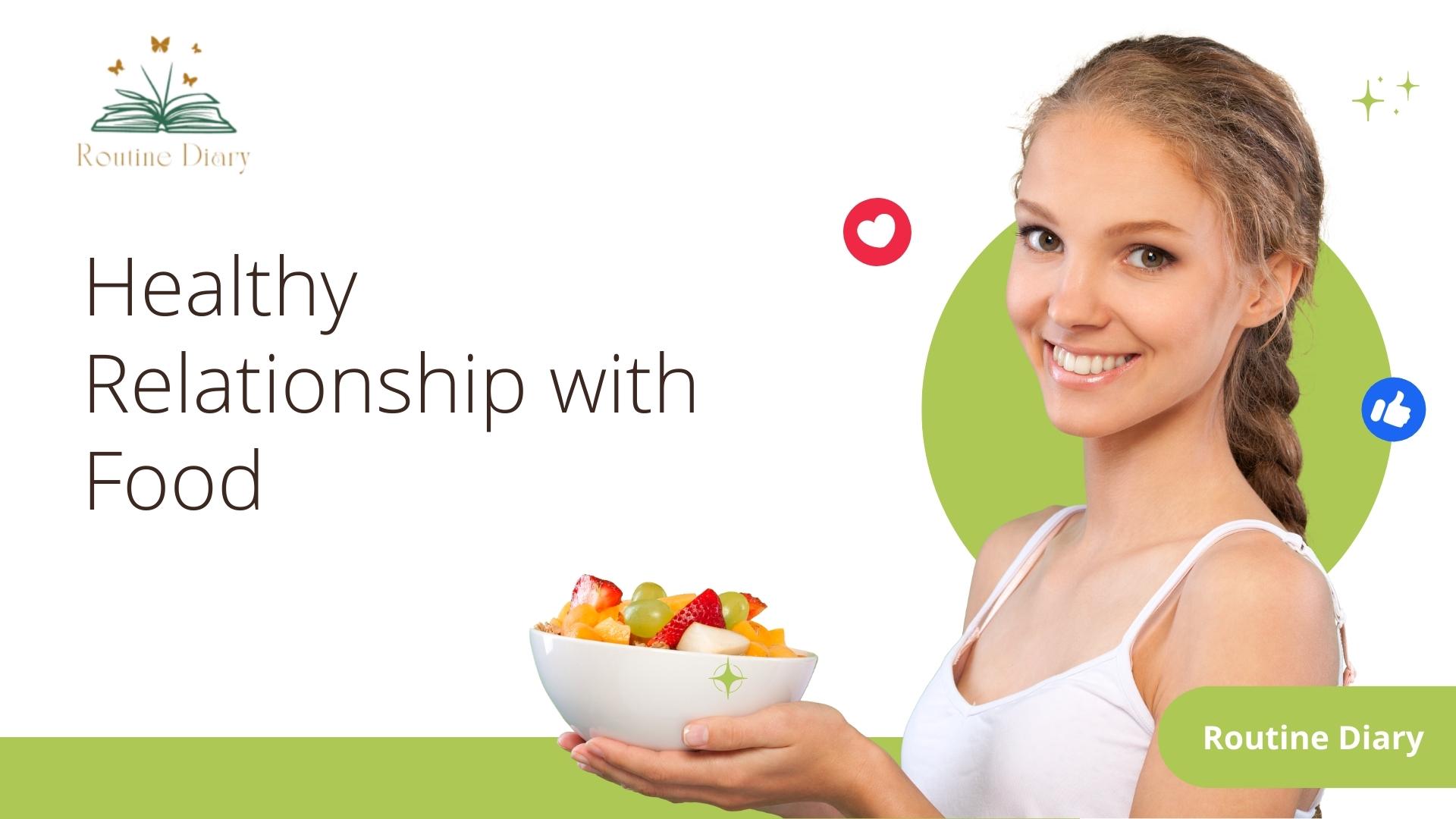Introduction:
In today’s fast-paced world, the concept of developing a healthy relationship with food seems to have been overshadowed by fad diets, unrealistic body standards, and constant social media comparisons. However, true wellness lies in cultivating a positive and balanced connection with the nourishment we provide to our bodies. Let’s embark on a journey of self-discovery, mindfulness, and self-care as we explore how to develop a healthy relationship with food.

Embrace the Power of Mindful Eating:
One of the fundamental pillars of building a healthy relationship with food is practicing mindful eating. Slow down, savor each bite, and pay attention to the flavors, textures, and sensations that food brings. Engage all your senses, and let go of distractions during mealtime. By being fully present, you can better understand your body’s hunger and satiety cues, leading to a more intuitive way of eating.
Ditch the Diet Mentality:
Say goodbye to restrictive diets and embrace a more sustainable approach. Restrictive eating patterns often create an unhealthy cycle of deprivation, guilt, and binge eating. Instead, focus on nourishing your body with a variety of wholesome foods that provide essential nutrients. Listen to your body’s needs and honor them without judgment or punishment.
Shift to a Whole Foods-Based Diet:
Aim to include more whole, unprocessed foods in your meals. Fruits, vegetables, whole grains, lean proteins, and healthy fats should form the foundation of your diet. Experiment with new recipes, flavors, and cooking techniques to make your meals enjoyable and nutritious. Remember, food is not just fuel; it’s an opportunity to explore and appreciate the diversity of flavors nature has to offer.
Practice Emotional Awareness:
Recognize that emotions and food are often intertwined. Emotional eating can be a response to stress, sadness, boredom, or even happiness. Instead of turning to food as a primary coping mechanism, develop alternative ways to deal with your emotions. Engage in activities such as exercise, journaling, meditation, or seeking support from loved ones. Learning to differentiate between physical and emotional hunger is key to maintaining a balanced relationship with food.
Banish Food Guilt and Judgment:
Let go of the guilt associated with indulging in your favorite treats. Allowing yourself occasional indulgences in moderation is a part of a healthy relationship with food. Adopt a non-judgmental attitude towards your food choices and focus on the overall balance of your diet instead of fixating on individual “good” or “bad” foods. Remember, it’s about progress, not perfection.
Seek Support and Education:
Building a healthy relationship with food is an ongoing process that requires support and guidance. Seek help from a registered dietitian or nutritionist who can provide personalized advice and help you set realistic goals. Additionally, educate yourself about nutrition, intuitive eating, and the impact of food on your overall well-being. Knowledge empowers you to make informed choices that align with your health and values.
Conclusion:
Developing a healthy relationship with food is about fostering self-compassion, practicing mindful eating, and nourishing your body with wholesome foods. It’s a journey of self-discovery and self-care that can lead to a more fulfilling and balanced life. Embrace the joy of eating, listen to your body, and savor each moment as you nourish yourself from within. Remember, you deserve to have a positive and harmonious relationship with food – one that nourishes both your body and soul.




